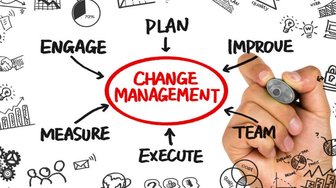 Our comprehensive PMO Framework covers the project lifecycle in 4 phases: Concept, Initiation, Delivery and Close. Having a clear Framework, with a standard methodology, process and tools, is critical to seeing a project successfully through to the end. Just because a project has realized its expected outcomes or results, the project is not yet quite over! The final project phase in our PMO Framework is the Close Phase. Don’t miss the opportunity to dot the I’s and cross the T’s…there is tremendous value in learning from your project successes and mishaps. Below, are the key activities we recommend occur during the Close Phase of your project. PM Checklist for the Close Phase:
Often overlooked, the Close phase of a project is critical to making sure all activities are completed and documented. Don’t miss the opportunity to bring your team and stakeholders together to learn from the project experience. And don’t forget to celebrate a project well planned and executed! What do you recommend occur during the close phase of a project? Do your project teams perform a “Lessons Learned” exercise?
0 Comments
 Our comprehensive PMO Framework covers the project lifecycle in 4 phases: Concept, Initiation, Delivery and Close. Having a clear Framework, with a standard methodology, process and tools, is critical to seeing a project successfully through to the end. The “business” of each project happens during this, the third phase of a project: the Delivery phase. It is during this phase that the actual project outcomes/expectations are created. In other words, this is the build phase of a project. Whether your project follows an Agile approach or a Waterfall approach, the following PM Checklist applies to you. See the PM Checklist for the Delivery Phase below:
Delivery is the operational part of the project where you execute on the work done in prior phases. Because this phase is often the longest part of your project, the activities listed above will need to be executed repeatedly in order to effectively manage the project. Please share your most critical tasks during the Delivery Phase of a project.
 A comprehensive PMO Framework is critical to seeing a project successfully through; a Framework we have used with clients includes 4 phases: Concept, Initiation, Delivery and Close. The initiation phase, the second of four phases, is critical because it is the phase in which you set yourself up for success! You finalize your goals, your team, your schedule and budget. In order to make sure you don’t miss any key activities during this phase, we have provided you with our PM Checklist below. Initiation Phase:
The activities undertaken during the Initiation phase ensure that you and your team are set up to succeed; you will confirm and finalize your goals and determine how you will achieve them. This phase prepares you to launch your project with a realistic timeline and budget. Are there any additional steps or suggestions you have for activities during the initiation phase?
 A comprehensive PMO Framework is critical to guide a project successfully through its lifecycle, from beginning to end. A PMO Framework we have used with clients has 4 project phases: Concept, Initiation, Delivery and Close. Having a clear project methodology, processes, and tools and templates enable project managers to guide their teams through the project phases. An easy and frequently used PM tool is their Checklist. They can refer to this tool many times during the day to make sure they are doing all the critical work needed during the project phase in which they find themselves. Key project activities during the first phase of a project, Concept Phase, are listed in our Project Management Checklist below. Concept Phase:
Although the Concept Phase involves a lot of work, it is worth spending the time and effort and is critical to setting your project up for success. Are there any other activities you recommend in the first phase of a project?
 Are you about to undertake a transformation or organizational change effort and are wondering how to manage the change? Here are some simple, yet critical, elements for any effective organizational change management approach, tailored to your organization. The initial phase of our framework is the PLANNING PHASE; it is the first and most important phase of your entire approach.Thorough planning is key to creating an effective change management framework that will work for your change effort. During this phase you will ask yourself: Who will be affected, what will change, and how will they change? WHO: Identify your Stakeholders.
WHAT: Understand what is changing and WHY?
For the “People” component, look at: roles & responsibilities, skill sets, training needs, job category and salary changes. For “Processes”, understand what will change and how – how will the new processes be documented, and how will your stakeholders be trained on the new processes? And, for “Technology” – look at any new or changed technology and understand how it will affect the processes and the people. HOW: How will the change actually be made?
Ideally, the planning phase should occur before the actual change begins. But, if you have already embarked on your change effort, you can still back up and make sure you have adequately covered all of the key elements listed above. How does your organization plan for a change effort? Do you have any additional suggestions?
 Does your organization have a framework to manage change? Does your organization have a framework to manage change? When embarking on a business or technology transformation your organization will be facing changes, the proactive management of the change significantly adds to your chances of success. Managing change implies understanding the potential impact of a change before it occurs. Managing change is critical to helping all those involved understand and accept the change. Ideally, individuals and the organization work through the change by actively participating in the planning, operation and reinforcement of the change. And, managing change helps ensure smooth and constructive adoption of the change, with as little disruption to the individuals and the organization. So where do you start and how do you do it? Our Organizational Change Management (OCM) Framework operates in three phases: 1. Planning for Change, 2. Making the Change, and, 3. Reinforcing the Change. Our OCM Framework helps you identify and address all necessary success factors and manage them with our simple, customizable tools. At each phase make sure you don’t forget or miss any critical element that could delay or hamper your progress so that you keep ahead of, and on top of, the common pitfalls. Does your company use a change management framework to plan, make and reinforce change?
|
ABOUTProcureVision, LLC is a management consulting company that enables our client's business success through the optimization of their people, process and technology. We provide creative, customized and completely implementable solutions. Archives
April 2018
Categories
All
|








 RSS Feed
RSS Feed